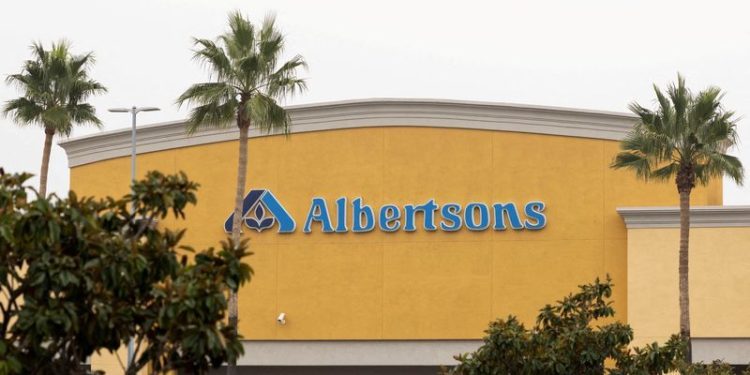By Jody Godoy
(Reuters) – The trial where U.S. anti-trust regulators made their case to block Kroger (NYSE:KR)’s $25 billion bid to buy rival grocer Albertsons (NYSE:ACI) will conclude on Tuesday, but the deal’s legal challenges have just begun, with two more trials this month to hear complaints the merger could jack up grocery bills.
For the past three weeks, the U.S. Federal Trade Commission and a coalition of states have sought to prove at trial in Portland, Oregon, that the deal would harm shoppers and unionized grocery workers.
By the time that case concludes on Tuesday, the companies will be on day two of another trial in Seattle where Washington state’s attorney general is challenging the deal. Beginning on Sept. 30, a judge in Denver will hear Colorado’s arguments for stopping the deal.
“It’s a notable increase in the cost, stretches out the timeline, and is an unwelcome additional collection of obstacles” for the companies, said William Kovacic, an antitrust professor at George Washington University.
Kroger and Albertsons have spent $864 million in merger costs this year, and they oppose all three cases. Kroger says the merger will result in lower prices and higher wages.
“Only global, non-unionized giants like Walmart (NYSE:WMT), Amazon (NASDAQ:AMZN) and Costco (NASDAQ:COST) will benefit from this deal being blocked,” the company said in a statement.
In Washington state, where Attorney General Bob Ferguson went to trial to block the deal on Monday, half of all grocery sales flow through one of the two chains, and 124 stores are slated to shift to C&S if the merger proceeds.
In addition to arguing the deal will raise prices and diminish choices for shoppers, Ferguson has argued it will make it easier for Kroger to close stores where workers are unionized and reopen them as non-union.
“We look forward to standing up for Washingtonians in Washington state court,” Ferguson said in a statement.
Colorado, too, has sued to block the merger over concerns from shoppers, workers and local farmers who supply both chains.
“Colorado cares about having local food. And that is an area where these two companies compete against each other. It’s important to farmers,” Attorney General Phil Weiser said in a recent interview.
At the Oregon trial that began on Aug. 26, the FTC and a coalition of eight states plus Washington, D.C. called grocery executives, union leaders and economists as witnesses to try to show the deal is likely to drive up prices and diminish workers’ bargaining power by eliminating head-to-head competition between the two chains.
The two grocers sought to show the deal was necessary to lower prices at Albertsons stores and enable both chains to compete with Walmart.
Kroger has said no stores will be closed as a result of the merger. But that would not prevent stores being closed or consolidated down the road.





